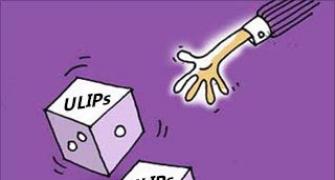
If you are new to investing andarenot sure how ademataccount worksoperates, here is everything you need to know aboutdemataccounts and what happens when you buy or sell shares online.
Investing has come a long way thanks to evolving technology. Today, buying and selling shares online are facilitated by the click of a button. This is a big change from the open outcry system used previously. Since the introduction of electronic system in the early nineties, trading has become easier, faster and safer.
What is demat account?
A demat account is essentially a platform where you can store all your shares. Just like you use your bank account to keep money, you use your demat account for keeping securities in an electronic -- or dematerialised -- format.
Whenever you buy any security in the financial markets, you are given an electronic record instead of a physical share certificate as was the case in the era gone by. You can keep your shares, mutual fund units, other debentures and bonds, and exchange traded funds (ETFs) in your demat account.
Is a demat account different from a trading account?
The short answer is yes. Trading accounts and demat accounts are two distinct accounts. You use your trading account to place orders for buying and selling shares, while the demat account is a storage and monitoring platform for your dematerialised securities.
To simplify things further, suppose you have Rs 50 in your wallet and you buy a pen from the stationery shop which you keep in your shirt pocket, then your shirt pocket is like a demat account where you store the purchased item while your wallet which you used to transact with is like your trading account.
Whom do I approach for opening ademataccount?
You can open a demat account with any depository participant. So, technically any bank or share brokerage company which is a registered Depository Participant (DP) with NSDL or CDSL can open demat account for their clients.
Your share broker may or may not be a Depository Participant and there is no compulsion that your DP account should be with your broker only.
Chargesand convertibility
Your Depository Participant can charge you an account opening fee, as well as an annual maintenance fee and transaction charges every time you buy or sell securities.
If you have any physical share certificates from the past, you can easily get them converted into electronic format. All you need to do is to surrender your physical share certificate and share details of the same with your associated depository participant.
Your DP will then get in touch with the company whose shares you own. The company would register your shareholdings in the name of your Depository Participant, which in turn will register you as the beneficial owner and store your share in electronic format in your demat account.
Share transfer process and timelines
Whenever you sell any shares, your shares are moved from your demat account and placed in your broker's account. This process is known as 'pay in of securities'. From your broker’s account, the shares are then moved to the clearing corporation.
Likewise, when you buy shares, they are moved from the clearing corporation to your broker's account and from there to your demat account. This process is called 'pay out of securities'.
From the payout date, shares get listed in your demat account in two working days. This is known as T+2 transactions. Usually, you will get shares in your demat account within 24 hours of your making a payout for buying of the securities.
Shares not showing up in your demat account is a very rare possibility, as the whole process is automated and transparent. If still you face any technical glitch after two working days, you can get in touch with your share broker who would assist you in sorting out the delay.
Opening a demat account, and buying or selling shares using your demat account is a simple process, which is automated and secure. You will however need to furnish your KYC details and PAN card to open a demat account.
Illustration: Dominic Xavier/Rediff.com
The author is CEO, BankBazaar.com









